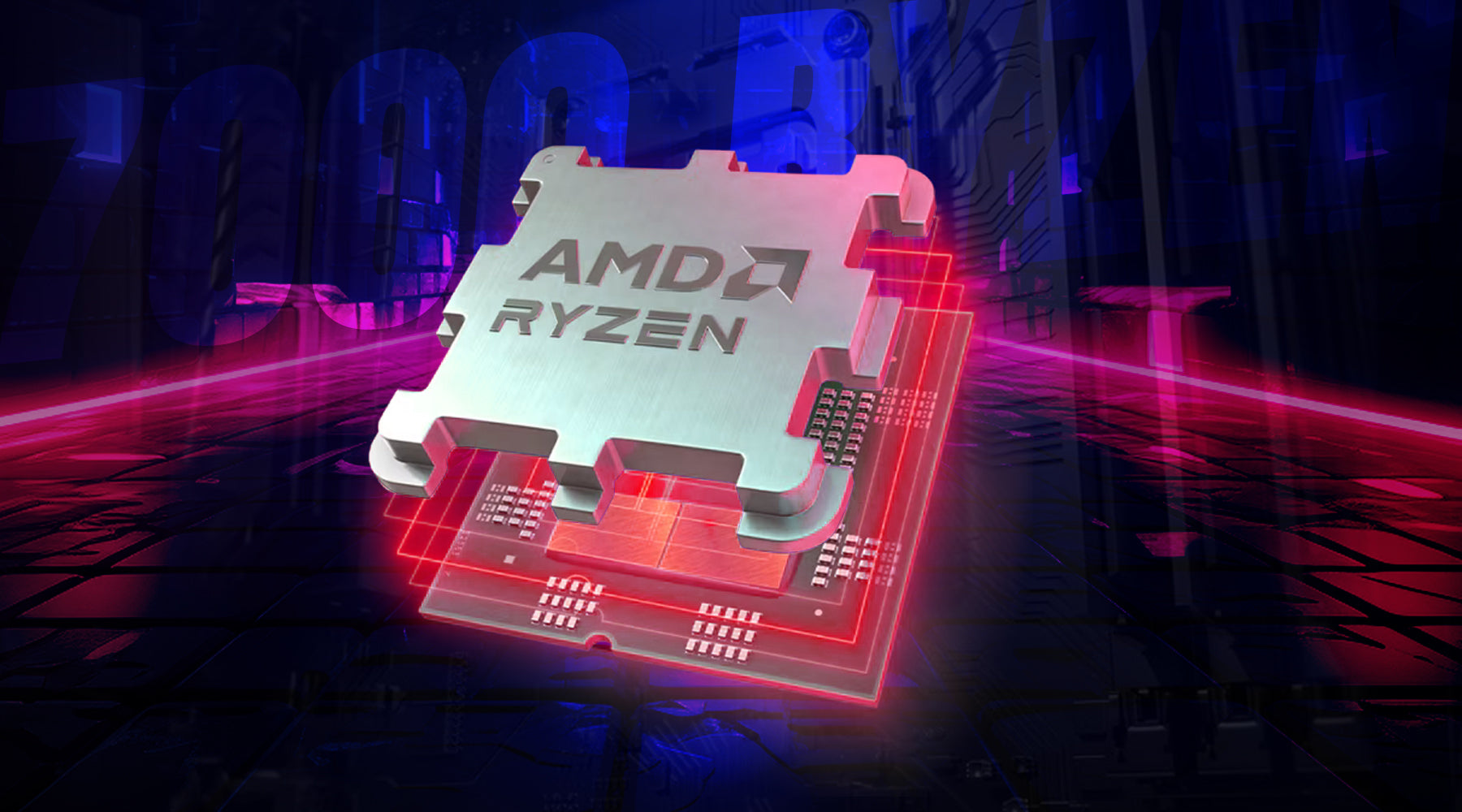With the advent of the AMD Ryzen 7000 series, a lot has happened in the world of computer processors. It's considered a significant milestone as it presents the new Zen 4 technology. This indicates that AMD has raised the bar for processor speed and efficiency once more. It appears that the standards for what we anticipate from computer chips have been altered. It is a significant advancement, demonstrating AMD's dedication to producing highly potent processors.
The Evolution of AMD Processors
The Ryzen 7000 series keeps results from a long history of innovation and competitiveness. AMD has always pushed the envelope, from the early days of its fight with Intel to the ground-breaking advancements achieved with the Zen architecture, culminating in the Zen 4 architecture that powers the Ryzen 7000 series.
Technical Features of Ryzen 7000
Specification:
- Core Count: The Ryzen 7000 series offers various core counts, from effective Ryzen 7 devices to powerful Ryzen 9 versions.
- Clock Speeds: For optimal performance, clock rates are adjusted, guaranteeing responsiveness and seamless multitasking across applications.
- Cache Size: Large cache sizes improve data access rates, enabling smooth job execution and lowering latency.
- Thermal Design Power (TDP): ratings to provide the best possible performance with the most minor power usage.
Performance Comparison
Ryzen 7 7800X
There are twelve computing units or cores:
- CPU: The number of concurrent tasks the CPU can handle is 24.
- Base Clock: The standard working frequency is 3.5 GHz.
- Frequency: 5.0 GHz is the maximum frequency under load for the max boost clock.
- Memory: 64 MB L3 cache is a fast memory used to store data.
- Heat: Maximum heat dissipation (TDP) is 105 W.
Ryzen 9 7900X
- Core: sixteen processing units, or cores.
- Threads: There are 32 concurrent threads.
- Base Clock: The default operating speed is 3.7 GHz.
- Maximum Boost Clock: Peak frequency of 5.2 GHz.
- Cache: 72 MB L3 cache—fast data storage—is available.
- TDP: The maximum thermal dissipation (TDP) is 125 watts.
Architecture and Technology
The Zen 4 architecture, the foundation of the Ryzen 7000 series, is an impressive display of technological innovation and engineering skills. These CPUs redefine speed, connection, and visual fidelity to meet user needs and preferences. They offer state-of-the-art capabilities, including integrated RDNA 2 graphics, PCIe Gen 5, and DDR5 memory.
https://technoidinc.com/blogs/gaming-pc/the-best-cpu-for-gaming-in-2024
The Ryzen 7000 Series Excels in All Performance Aspects:
- Architecture: Owing to enhanced architecture and faster clock rates, single-threaded tasks experience notable speed increases.
- Core: Increased core counts and enhanced multi-threading capabilities enable multithreaded workloads to handle concurrent jobs with unparalleled efficiency.
- Input: Support for cutting-edge gaming technology, lower input latency, and increased frame rates enhance the gaming experience.
- Access: Multitasking and accessing raw processing power allows content development tasks faster rendering times and more seamless processes.
Experts depend on the Ryzen 7000 series to manage heavy workloads with ease.
Use Cases and Applications
The Ryzen 7000 series is the go-to option for many consumers because of its adaptability, which spans many use cases and applications. These processors offer unmatched performance for various applications, including gaming, video production, and professional workloads. This results in smooth operations and increased efficiency.
Market Impact
The market impact is as follows:
- Ryzen 7000 Series Launch's Market Impact: Changing Market Dynamics The launch has had significant repercussions in the tech industry.
- Challenging Rivals: AMD's debut has presented a severe obstacle to more seasoned rivals.
- Better Performance: Compared to other models, the series performs better.
- Advanced Features: Including advanced features improves functionality and user experience.
- Competitive Pricing: AMD has gained market share and recognition for its competitive pricing approach.
- Solidified Position: AMD's status as a significant participant in the CPU market has been with the launch.
Widespread praise and enthusiasm from industry analysts and customers highlight the significance of the Ryzen 7000 series.
Run Down
The AMD Ryzen 7000 series, with its cutting-edge architecture and flexible features, redefines excellence in computing. Users can achieve performance and efficiency in gaming, video production, or business duties. For more information on how Ryzen 7000 CPUs can improve your computing experience, visit Technoid now.
FAQs
What distinguishes the AMD Ryzen 7000 series CPUs from those of earlier generations?
The Zen 4 architecture, new to the Ryzen 7000 series, offers notable gains in performance, economy, and creativity. These CPUs change computing standards with increased core counts, faster clock rates, sophisticated features like PCIe Gen 5, and support for DDR5 memory.
How do the Ryzen 7000 series' CPUs stack up against its rivals?
Compared to competing products, AMD's Ryzen 7000 series CPUs have better performance, cutting-edge features, and affordable prices. With benchmarks demonstrating their abilities in professional workloads, gaming, and content creation, AMD has become a solid rival to established brands.
What possible advantages come with switching to AMD Ryzen 7000 series CPUs?
By upgrading to a Ryzen 7000 series CPU, customers may access unmatched power and performance for a wide range of applications. These processors offer quicker speeds, more seamless workflows, and more efficiency, resulting in a transformational computing experience for professional workloads, gaming, or content creation.

 United States
United States

